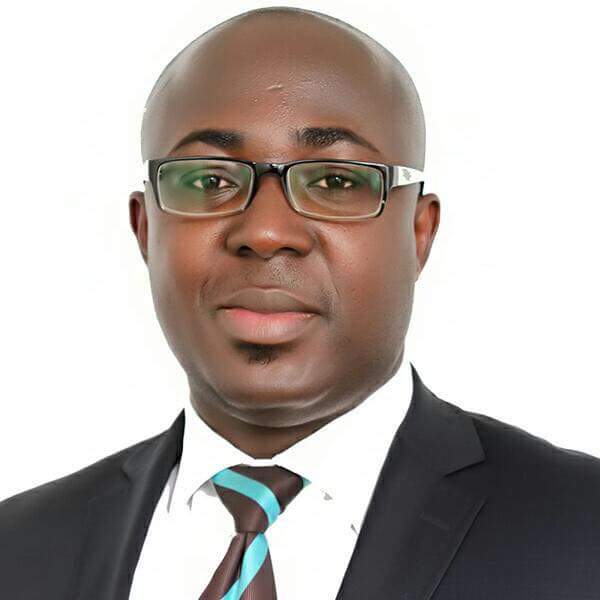Medical Credit Fund has earned a place on the ImpactAssets50 (IA 50), an international scheme that recognizes impact investment funds worldwide.
IA 50 includes a range of experienced funds across the globe, spanning diverse issue areas and investments, with demonstrated and compelling social and environmental impact.
For investors, IA 50 provides a useful resource to evaluate sustainable and responsible investing options.
It is the 6th consecutive time MCF has been included in the list – a continuing recognition for the organization’s effort to strengthen health SMEs in Africa.
According to the Country Director of MCF, Mr. Derrick Ewudzie-Odoom, this selection means that the Medical Credit Fund is making tremendous impact in healthcare financing in Ghana and Africa.
Since its inception, ImpactAssets has become the leading facilitator of direct impact investing within donor advised funds.
The ImpactAssets portfolio represents more than 568 impact investment positions and $1 billion in assets.
Mr. Derrick Ewudzie-Odoom, said this recognition opens up the Medical Credit Fund as a highly placed healthcare financing institution where investor funds yield maximum results, make the needed social and environmental impacts while improving healthcare delivery in Ghana and Africa as a whole.
He said “For us in the Medical Credit Fund this means that the work we have been doing in changing the way quality healthcare financing has been done over the years in Ghana is being internationally recognized.”
“This requires that we do more to improve and impact more lives through the financing of medical quality improvement and strengthen the businesses of our partner healthcare providers” Mr. Derrick Ewudzie-Odoom, emphasized.
ImpactAssets 50 connect donors to a rotating offering of private impact funds, as well as a broader asset platform, all fully aligned to the UN Sustainable Development Goals (SDGs) framework.
The portfolio selects only 50 organizations across the world every year and recognizes such organizations as being credible impact driven organizations worthy of investment.
The MCF is not relenting on its achievements beyond this international recognition but rather poised to mobilize more risk capital and make them available to private (including faith-based) and quasi-public health providers in sub-Saharan Africa; all in the bid to increase access to quality healthcare delivery towards achievement of Universal Health Coverage
MCF to support health facilities to fight COVID 19
Mr. Derrick Ewudzie-Odoom, said The Medical Credit Fund (MCF) is well-positioned to assist hospitals in Ghana to combat the spread of the novel Coronavirus disease (COVID-19) which has become a global pandemic.
According to the Country Director of MCF, “The Fund is in prime position to offer access to finance and quality improvement programmes to help deal with the possible surge in the pandemic.”
Many experts have questioned the ability of Ghana’s health system to manage extreme cases of the COVID-19 spread which has overwhelmed many health systems across the globe.
But Mr. Ewudzie-Odoom said, the MCF is capable of extending loan facility ranging between $4,000 and $2.5 million to private and quasi-public health facilities including pharmaceutical companies to expand their infrastructure, purchase medical supplies (medicines and consumables) and equipment for the management of diseases including COVID-19.
He also applauded the government for the steps it has taken to fight coronavirus and appealed to the general public to adhere to the Ministry of Health’s directives and follow the hygienic protocols to contain the spread.
Medical Credit Fund impact in Ghana
Mr. Ewudzie-Odoom said the Medical Credit Fund does not only provide financing to hospitals and clinics but to other players in the health industry such as pharmaceutical manufacturers and wholesalers, pharmacies, laboratories, diagnostic centres, medical suppliers, and health training institutions.
Established in 2009 as part of the PharmAccess Group, the Medical Credit Fund is the only fund dedicated to financing small and medium-sized healthcare facilities in Africa.
The public health system across Africa especially the private healthcare sector faces many challenges which include capacity and quality of care. For small and medium enterprises (SMEs), it is even more challenging to access loans to invest and expand their healthcare facilities and services.
By reducing the perceived risks of investing in this sector, MCF provides liquidity to Health SMEs that find it difficult to secure formal bank loans. The funds are then invested in facilities, equipment, infrastructure, commodities, staff and systems that deliver enhanced care to all patients supported by the internationally-accredited SafeCare program.
He said the Medical Credit Fund in partnership with the NHIA and its partner banks (Fidelity Bank and Republic Bank) have a certain arrangement that allows the MCF to pre finance the vetted claims of medical facilities. “This allows the facilities to run effectively while they wait for NHIA to reimburse such claims.” He added.
According to Mr. Ewudzie-Odoom, this NHIA claims pre financing has saved many hospitals and clinics by providing them with regular access to financing.
He further explained that MCF does not only provide financial support to health facilities, we help the hospital and clinics to adopt a stepwise quality improvement program in health delivery, through the ISQua accredited SafeCare basic health standards.
The MCF has partnered with banks in Ghana to design health-focused products that support the thousands of players in the health value chain in Ghana. These include the Fidelity Mediloan and Republic Medical Loan.
In its 8 years of existence in Ghana, MCF has made giant strides in disbursing about 660 credit facilities worth Cedi equivalent of $13.6 million to well over 350 healthcare providers.
Mr. Derrick Ewudzie-Odoom, said “Some of our partner hospitals have moved from being only 5 bed facilities to 100 and over bed hospitals providing SafeCare accredited quality healthcare to clients.”

